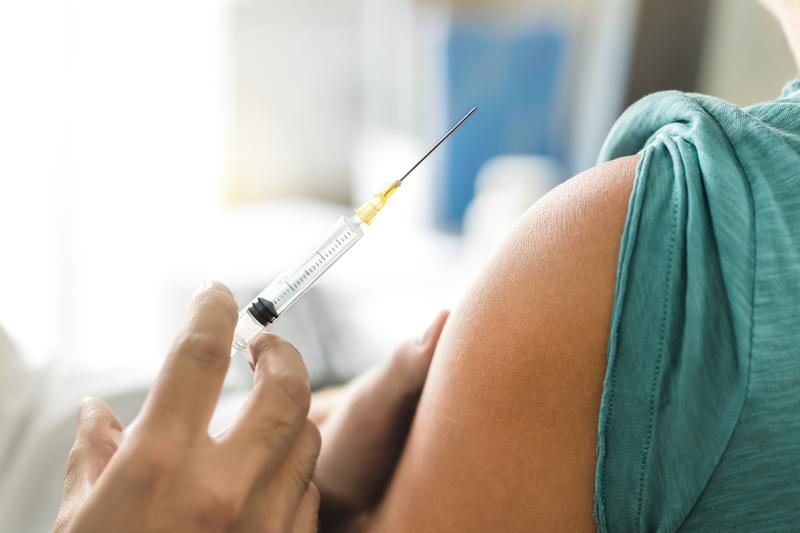This page has been automatically translated. Please refer to the page in French if needed.
Cancer prevention
Papillomavirus: widespread vaccination in 2023 for 5th grade students
Publié le 07 mars 2023 - Mise à jour le 03 janvier 2024 - Legal and Administrative Information Directorate (Prime Minister)
A widespread vaccination campaign has been launched in colleges for students of 5e to better fight against the papillomavirus. Vaccination is available to all schoolchildren, girls and boys, starting at the 5-child levele, should increase vaccination coverage and prevent infection, which causes 6 000 new cases of cancer and 30 000 pre-cancerous cervical lesions each year.

Starting in September 2023, middle school students will be in class of 5emay be vaccinated free of charge to ensure better protection against cancers related to human papilloma viruses (or HPV). This is provided for in the Social Security Financing Act of 26 December 2023, published in the Official Journal of 27 December 2023. Parental agreement is required and vaccination is not mandatory. An experiment in the Grand Est region has already been carried out for two years and has shown good results among young people attending class 5e, the vaccination rate increased from 9% to 27% in the first year and from 14% to 31% in the second.
What is human papillomavirus?
Human Papilloma Viruses (HPVs) are very common viruses, there are more than 150 types. They can infect the skin and mucous membranes and cause benign or malignant lesions. Transmission is almost exclusively through sexual contact.
Most HPV infections do not cause damage. In 90% of cases, the infection is transient and resolves naturally within one to two years after sexual contamination. In 10% of people, the infection persists and can cause abnormalities (lesions) in the lining of the cervix. This is called precancerous lesions. These lesions may progress to cancer 10 to 15 years after infection with the virus.
FYI
Condoms do not provide adequate protection against HPV infection because they do not cover the entire genital area. Only vaccination of girls and boys protects against HPV.
The vaccine against human papillomavirus infections: for whom?
HPV vaccination is not among the 11 mandatory vaccinations but is strongly recommended for:
- All girls and also all boys aged 11 to 14 years. The vaccine is more effective because girls and boys have not yet been exposed to HPV infection.
- Catching up, for both sexes aged 15-19 years and older who have not yet been vaccinated.
- Men who have sex with men (MSM), up to age 26 years to prevent anal precancerous lesions, anal cancers, and condylomas (small warts).
Warning
The existence of HPV-protective vaccines does not exempt women from routine HPV screening cervical cancer by smear every 3 years between ages 25 and 65, whether or not they are vaccinated against human papillomaviruses (HPV).
What HPV vaccines are available?
Two vaccines can be used:
- a bivalent vaccine (which protects against type 16, 18 viruses): Cervarix® ;
- a nine-valent vaccine (which also protects against type 31, 33, 45, 52 and 58 viruses): Gardasil 9®.
Vaccines are not interchangeable and any vaccination initiated with any of them must be completed with the same vaccine.
The High Council on Public Health (HCSP) recommends that any new vaccination be initiated with Gardasil® 9 vaccine for previously unvaccinated individuals.
This vaccine protects against infections caused by HPV types 16, 18, 31, 33, 45, 52 and 58, which are responsible for 90% of cervical cancers, 80% of anal cancers and 90% of anogenital warts (condylomas).
Please note
Vaccination against HPV has been recommended since 2007 for girls aged 11 to 14 years, and recommended for boys since January 2021. The free college papillomavirus vaccination campaign will protect 800,000 students per year from HPV-related cancers. Pharmacists, midwives and nurses may prescribe and vaccinate against HPV (papillomavirus).
Additional topics
Service-Public.fr
Government.fr
National Health Insurance Fund (Cnam)
Public Health France
National Cancer Institute
National Audiovisual Institute
Agenda
Apprentissage
Jusqu'au 17 mai 2024
Publié le 03 mai 2024
Impôts
À partir du 11 avr. 2024
Publié le 11 avril 2024
Prévention Covid-19
À partir du 15 avr. 2024
Publié le 18 mars 2024
Calendrier scolaire
Du 6 avr. au 12 mai 2024
Publié le 15 mars 2024

